#Naturalist Intelligence
Text
INTELLIGENCE VS INTELLECT
The word Intelligence and Intellect are both used for intelligent, smart People. In everyday life, people use the words Intelligence and Intellect, as they seem to be the same texture but differ in their degree of complexity and meanings. When we talk about another person's ability to understand things and reasoning, then we are talking about two terminologies: 1-Intelligence, 2-Intellect.Read more
#Bodily kinesthetic#Existential Intelligence#INTELLIGENCE-INTELLECT#Interpersonal#Intrapersonal#Linguistic#Logical#Mathematical#Multiple Intelligence#Musical#Naturalist#Philosophy#Psychology#Spatial#Naturalist Intelligence#Intra-Personal Intelligence#Interpersonal Intelligence#Linguistic Intelligence#Musical Intelligence#Spatial Intelligence#Logical-Mathematical Intelligence#Types of Intelligence#What is Multiple Intelligence#Differences Between Intelligence and Intellect
0 notes
Text
Daniel Dennett (1942 - 2024)
Many of us today woke up to a world that felt a little less vibrant, a little less intellectually stimulating. Daniel Dennett, a philosopher who revolutionized our understanding of the mind, science, and consciousness, passed away yesterday.
Daniel Dennett, image taken from Wikipedia
For me, Dennett was a guiding light in his study field. His work, particularly his early books “Content and…

View On WordPress
#academia#Artificial Intelligence#biology#cognitive science#computationalism#consciousness#cultural commentator#Daniel Dennett#Darwin#free will#mental processes#Mind#multiple drafts model#naturalistic approach#nature of reality#philosopher#Philosophy#philosophy of mind#philosophy of science#Raffaello Palandri#science#wisdom
12 notes
·
View notes
Photo


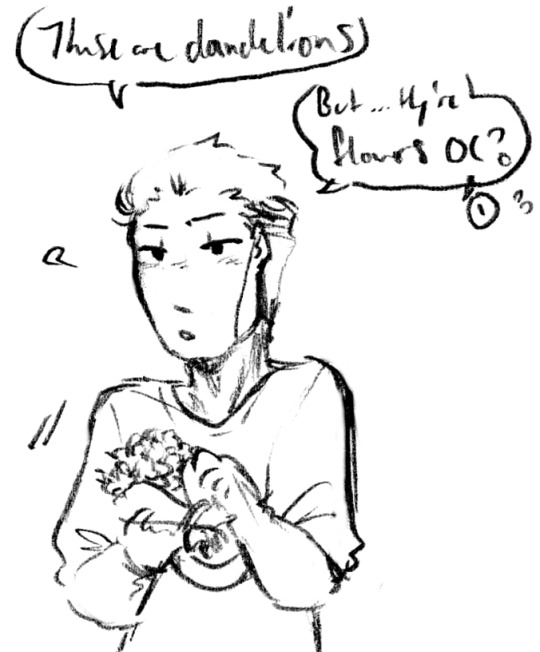
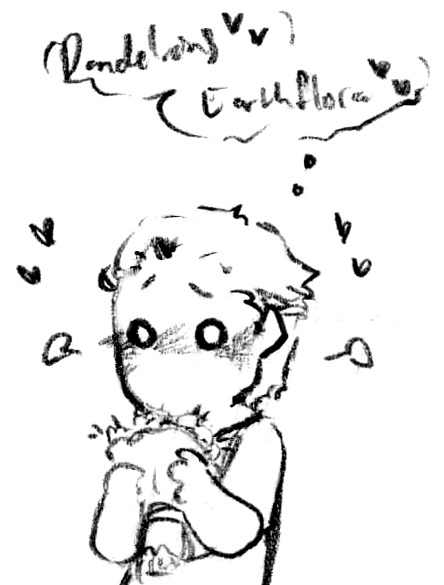

Totally unaffected by this gesture of affection, definitely (Patreon)
#Doodles#SCII#Helix#The Captain#ZEX#Forgive the quality lol I wanted to make them pretty but then- Well you know lol#Dandelions <3 <3 <3 <3 <3 <3 <3#You know it's bad when you start getting excited about the most mundane little signifiers <3#Dandelions deserve way more love than they get anyway it all balances out#I just hghh it's such a simple setup but there's a lot of feelings that can be expanded upon!#Like would Zelnick know about dandelions cultural ties?? He grew up on Unzervalt - unless someone brought some with them!#Or explained it I guess - but also Unzervaltians seem like scrappy underdogs sprouting up in the sidewalk cracks to defy the Ur-Quan too#Feels like it would actually mean a lot to him if he knew their symbolism!#But even if he didn't - they're Earth Flora! A piece of his home that /should/ just be mundane and everyday and not a big deal but it is!!#I legit teared up at Zelnick appreciating a blue atmosphere ah <3#He loves Earth so much wah <3 The naturalistic storytelling in his internal monologue are genuinely So Good#And then y'already know I love ZEX gifting him flowers lol I really do need to finish that one comic I posted the preview of it's cute!#Any little way that he engages with human courtship is The Cutest to me <3 Trying so hard to impress his love!#Trying so hard to cross that cultural gap agh it gets me bad! Seeing humans as more than just pretty somethings to be enjoyed at a distance#ZEX's pride also gets me bad hehe but I really love when he uses his intelligence to try to relate and understand#See humans as complex individuals both personally and in different cultures! He gets so distracted so easily hehe silly ♪#Also I don't know if I have anywhere else that it'd come up but agh gods his and Zelnick's conversation about the eventual fallout of ZEX's#kidnap attempt - Literally The Best like ugh!! ♥ I /tried/ to write something half that exact and eloquent and it's just right there! Gah!!#S'beautiful s'so good fjdslafd I'm love I'm love
7 notes
·
View notes
Text
If you stay at [an eerie restaurant] and go, "Well, why does it feel weird?" what you begin doing is you begin accumulating a sort of database of the meanings that you encounter in the world. And that gives us a clue. We've all met a dog that we thought might be nice, and we start to pet it. Then, we have this weird feeling that it's not really a nice dog. That's sort of the thing that you begin to do. In the indigenous world, that sort of dictionary of meanings was extremely well-developed. And as you do that and learn to read the world through that kind of process, oddly enough, more and more visionary experiences just naturally begin to emerge into your experience. And you start to develop the ability to learn in the old way: to get the direct transmission of the world without going through deduction and trial-and-error. The Ancient Athenians talked about it. The Romans talked about it. It's not a strange phenomenon. It's as natural to us as breathing.
- Stephen Harrod Buhner on The Medicine Stories Podcast (ep. 8 "Planetary Intelligence, Ancestral Resonance, & Heart Perception")
#q#quotes#stephen harrod buhner#the medicine stories podcast#intuition#naturalistic intelligence#mindful consumption#mindful living#mindfulness#holistic leveling up#leveling up#that girl#green juice girl#solarpunk#altered states of consciousness#true being#mindsets#awareness#sidewalkchemistry
2 notes
·
View notes
Text
youtube
#forme#intelligence#naturaliste#musicale#logico#mathématique#existentielle#interpersonnelle#corporelle#kinesthétique#linguistique#intrapersonnelle#spatiale#Youtube
0 notes
Text
꒰ tag drop #5 ꒱
#꒰ muse: the fanatic ꒱#꒰ muse: the feminist ꒱#꒰ muse: the fighter ꒱#꒰ muse: the flirt ꒱#꒰ muse: the foodie ꒱#꒰ muse: the gamer ꒱#꒰ muse: the globetrotter ꒱#꒰ muse: the gossip ꒱#꒰ muse: the heart of gold ꒱#꒰ muse: the hedonist ꒱#꒰ muse: the independent ꒱#꒰ muse: the instigator ꒱#꒰ muse: the intelligent ꒱#꒰ muse: the introvert ꒱#꒰ muse: the law ꒱#꒰ muse: the medic ꒱#꒰ muse: the melodramatic ꒱#꒰ muse: the misanthrope ꒱#꒰ muse: the musician ꒱#꒰ muse: the naturalist ꒱#꒰ muse: the night owl ꒱#tag drop
0 notes
Text
How plausible sentence generators are changing the bullshit wars
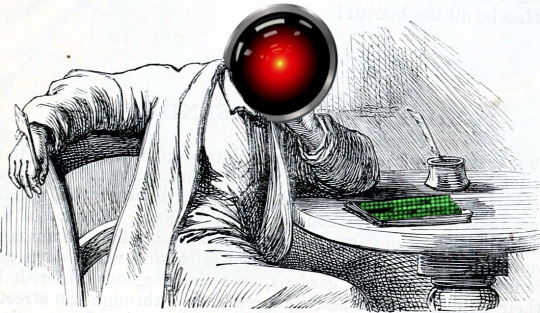
This Friday (September 8) at 10hPT/17hUK, I'm livestreaming "How To Dismantle the Internet" with Intelligence Squared.
On September 12 at 7pm, I'll be at Toronto's Another Story Bookshop with my new book The Internet Con: How to Seize the Means of Computation.

In my latest Locus Magazine column, "Plausible Sentence Generators," I describe how I unwittingly came to use – and even be impressed by – an AI chatbot – and what this means for a specialized, highly salient form of writing, namely, "bullshit":
https://locusmag.com/2023/09/commentary-by-cory-doctorow-plausible-sentence-generators/
Here's what happened: I got stranded at JFK due to heavy weather and an air-traffic control tower fire that locked down every westbound flight on the east coast. The American Airlines agent told me to try going standby the next morning, and advised that if I booked a hotel and saved my taxi receipts, I would get reimbursed when I got home to LA.
But when I got home, the airline's reps told me they would absolutely not reimburse me, that this was their policy, and they didn't care that their representative had promised they'd make me whole. This was so frustrating that I decided to take the airline to small claims court: I'm no lawyer, but I know that a contract takes place when an offer is made and accepted, and so I had a contract, and AA was violating it, and stiffing me for over $400.
The problem was that I didn't know anything about filing a small claim. I've been ripped off by lots of large American businesses, but none had pissed me off enough to sue – until American broke its contract with me.
So I googled it. I found a website that gave step-by-step instructions, starting with sending a "final demand" letter to the airline's business office. They offered to help me write the letter, and so I clicked and I typed and I wrote a pretty stern legal letter.
Now, I'm not a lawyer, but I have worked for a campaigning law-firm for over 20 years, and I've spent the same amount of time writing about the sins of the rich and powerful. I've seen a lot of threats, both those received by our clients and sent to me.
I've been threatened by everyone from Gwyneth Paltrow to Ralph Lauren to the Sacklers. I've been threatened by lawyers representing the billionaire who owned NSOG roup, the notoroious cyber arms-dealer. I even got a series of vicious, baseless threats from lawyers representing LAX's private terminal.
So I know a thing or two about writing a legal threat! I gave it a good effort and then submitted the form, and got a message asking me to wait for a minute or two. A couple minutes later, the form returned a new version of my letter, expanded and augmented. Now, my letter was a little scary – but this version was bowel-looseningly terrifying.
I had unwittingly used a chatbot. The website had fed my letter to a Large Language Model, likely ChatGPT, with a prompt like, "Make this into an aggressive, bullying legal threat." The chatbot obliged.
I don't think much of LLMs. After you get past the initial party trick of getting something like, "instructions for removing a grilled-cheese sandwich from a VCR in the style of the King James Bible," the novelty wears thin:
https://www.emergentmind.com/posts/write-a-biblical-verse-in-the-style-of-the-king-james
Yes, science fiction magazines are inundated with LLM-written short stories, but the problem there isn't merely the overwhelming quantity of machine-generated stories – it's also that they suck. They're bad stories:
https://www.npr.org/2023/02/24/1159286436/ai-chatbot-chatgpt-magazine-clarkesworld-artificial-intelligence
LLMs generate naturalistic prose. This is an impressive technical feat, and the details are genuinely fascinating. This series by Ben Levinstein is a must-read peek under the hood:
https://benlevinstein.substack.com/p/how-to-think-about-large-language
But "naturalistic prose" isn't necessarily good prose. A lot of naturalistic language is awful. In particular, legal documents are fucking terrible. Lawyers affect a stilted, stylized language that is both officious and obfuscated.
The LLM I accidentally used to rewrite my legal threat transmuted my own prose into something that reads like it was written by a $600/hour paralegal working for a $1500/hour partner at a white-show law-firm. As such, it sends a signal: "The person who commissioned this letter is so angry at you that they are willing to spend $600 to get you to cough up the $400 you owe them. Moreover, they are so well-resourced that they can afford to pursue this claim beyond any rational economic basis."
Let's be clear here: these kinds of lawyer letters aren't good writing; they're a highly specific form of bad writing. The point of this letter isn't to parse the text, it's to send a signal. If the letter was well-written, it wouldn't send the right signal. For the letter to work, it has to read like it was written by someone whose prose-sense was irreparably damaged by a legal education.
Here's the thing: the fact that an LLM can manufacture this once-expensive signal for free means that the signal's meaning will shortly change, forever. Once companies realize that this kind of letter can be generated on demand, it will cease to mean, "You are dealing with a furious, vindictive rich person." It will come to mean, "You are dealing with someone who knows how to type 'generate legal threat' into a search box."
Legal threat letters are in a class of language formally called "bullshit":
https://press.princeton.edu/books/hardcover/9780691122946/on-bullshit
LLMs may not be good at generating science fiction short stories, but they're excellent at generating bullshit. For example, a university prof friend of mine admits that they and all their colleagues are now writing grad student recommendation letters by feeding a few bullet points to an LLM, which inflates them with bullshit, adding puffery to swell those bullet points into lengthy paragraphs.
Naturally, the next stage is that profs on the receiving end of these recommendation letters will ask another LLM to summarize them by reducing them to a few bullet points. This is next-level bullshit: a few easily-grasped points are turned into a florid sheet of nonsense, which is then reconverted into a few bullet-points again, though these may only be tangentially related to the original.
What comes next? The reference letter becomes a useless signal. It goes from being a thing that a prof has to really believe in you to produce, whose mere existence is thus significant, to a thing that can be produced with the click of a button, and then it signifies nothing.
We've been through this before. It used to be that sending a letter to your legislative representative meant a lot. Then, automated internet forms produced by activists like me made it far easier to send those letters and lawmakers stopped taking them so seriously. So we created automatic dialers to let you phone your lawmakers, this being another once-powerful signal. Lowering the cost of making the phone call inevitably made the phone call mean less.
Today, we are in a war over signals. The actors and writers who've trudged through the heat-dome up and down the sidewalks in front of the studios in my neighborhood are sending a very powerful signal. The fact that they're fighting to prevent their industry from being enshittified by plausible sentence generators that can produce bullshit on demand makes their fight especially important.
Chatbots are the nuclear weapons of the bullshit wars. Want to generate 2,000 words of nonsense about "the first time I ate an egg," to run overtop of an omelet recipe you're hoping to make the number one Google result? ChatGPT has you covered. Want to generate fake complaints or fake positive reviews? The Stochastic Parrot will produce 'em all day long.
As I wrote for Locus: "None of this prose is good, none of it is really socially useful, but there’s demand for it. Ironically, the more bullshit there is, the more bullshit filters there are, and this requires still more bullshit to overcome it."
Meanwhile, AA still hasn't answered my letter, and to be honest, I'm so sick of bullshit I can't be bothered to sue them anymore. I suppose that's what they were counting on.



If you'd like an essay-formatted version of this post to read or share, here's a link to it on pluralistic.net, my surveillance-free, ad-free, tracker-free blog:
https://pluralistic.net/2023/09/07/govern-yourself-accordingly/#robolawyers

Image:
Cryteria (modified)
https://commons.wikimedia.org/wiki/File:HAL9000.svg
CC BY 3.0
https://creativecommons.org/licenses/by/3.0/deed.en
#pluralistic#chatbots#plausible sentence generators#robot lawyers#robolawyers#ai#ml#machine learning#artificial intelligence#stochastic parrots#bullshit#bullshit generators#the bullshit wars#llms#large language models#writing#Ben Levinstein
2K notes
·
View notes
Text
The Different Types of Intelligence: What Kind of Smarts are You?
The Different Types of Intelligence: What Kind of Smarts are You?
The various kinds of intelligence While some types of intelligence are more widely recognised and valued than others, the truth is that no one intelligence is superior to another. It’s more important to figure out what kind of intelligence you have. This can help you maximise your natural advantages while also highlighting an area where you might need to put in a little extra effort to succeed.…

View On WordPress
#intelligence#Linguistic intelligence#Logical-mathematical#Musical intelligence#Naturalistic intelligence#smarts#types of intelligence
0 notes
Text
LEVI IS A SMART COOKIE — HEADCANONS (AND APPRECIATION?)

🐟 Let’s start stating the obvious: he is hella smart. He’s an Admiral, he had to study and work hard for it! He might be shy and socially awkward, but we can’t invalidate his entire personality just because he actually says “ROFL” out loud. A person (or demon, in this case) can be goofy and smart — one doesn’t cancel out the other.
🐟 That settled, here is what I think about it:
🐟 From strongest to weakest (and to make things easier), I’d rank his intelligences: visual-spatial, logical-mathematical, verbal-linguistic, naturalistic, bodily-kinesthetic, musical, intrapersonal and interpersonal.
🪸 Visual-spatial: he needs to be good at it if he’s gonna navigate. He barely leaves his room, but he’s got the whole Devildom mapped out in his head. He can walk blindfolded and still be able to arrive at RAD or anywhere he needs to go.
🪸 Logical-mathematical: he has an insanely good strategic mind. You think he’s an Admiral just because he’s one of the Seven Lords? He’s got serious skills in what he does, or it wouldn’t have worked out.
🪸 Verbal-linguistic: he might have a hard time speaking to new people, but he has good communication once he trusts you enough. He can be assertive when he needs to and, again, he has to be able to communicate when he’s commanding his crew. And he’s a really good writer.
🪸 Naturalistic: he loves animals! He looked at a giant snake and decided it was a good friend. He has Henry 2.0 for who knows how long and he takes such good care of him. For me, he loves the ocean, from both the Human and the Demon World. He is a sea serpent demon, so he can swim with all sorts of creatures, learning about them along the way. Sometimes, he even feels a connection to those deep-sea dwellers — living in the dark, solitary depths. (you’re welcome for the angst thought)
🪸 Bodily-kinesthetic: he has good coordination and no one can convince me otherwise. He likes to learn the choreographies of his favorite idols. I think he can learn it pretty fast, and he can teach it easily if you want to learn it too. Now you can dance together and it’s wholesome. Not to mention, he still is a demon and #3 in their power rank. He didn’t get that number randomly. Also, he can sew his own cosplays; he needs good coordination for sewing.
🪸 Musical: he learned about music for his pleasure. He is good at listening to the slight change in rhythm, so he knows exactly when to do a certain move when he’s dancing and all the cues when he’s singing. He will annoy you if you sing it 0.02 seconds earlier. He can play the keyboard and probably the drums.
🪸 Intrapersonal: his self-esteem is not good (we just need to help him a little), but I think he has a deep comprehension of himself. He knows what he likes and dislikes, how he’ll react when something happens and how to deal with his own outbursts. Understanding and putting it into practice, however, aren’t always the same, and that’s where emotions take the lead (hence why it’s intelligence #7). That’s when he summons Lotan.
🪸 Interpersonal: do I need to say something? I love my boy, but he has a hard time meeting new people and that's fine too.

Masterlists
#he's so much more than an otaku#and it's my mission to help him see it too#we stan levi in this blog and we always will#obey me#obey me headcanons#obey me hcs#obey me levi#obey me leviathan
256 notes
·
View notes
Note
Unpopular opinion: parts of the cr fandom are really dismissive/ reductive of Travis’s characters. It feels like it’s due to Travis being seen as THE cis het man of the group, and by extension his characters must be heteronormative and bad, despite the fact that you could have queer interpretations of his characters. At the very least, Travis’s characters explore masculinity and the different ways it might look. It’s like the people who are all “ew men are gross and shitty” and act like that’s an absolutely normal reaction to a man just existing.
So this is another one in that I agree with the initial statement, but I'm actually not sure re: the reasoning why. I think it's possible but I could not tell you for sure.
I used to, again, think this was people carrying through Campaign 1 elements well beyond the point where C1 had ended, and so Grog having an intelligence of 6 was being applied to Travis; and this definitely does come through to an extent when people treat Fjord (objectively as smart as Beau without her circlet) as stupid or act shocked that Chetney is the brains of Bells Hells or that he can play a Cerrit, Fjord, or Nathaniel. However, again, I think this is one of those opinions that pops up among people who weren't around for Campaign 1 (or early enough in C2 to be exposed to it regularly) so I don't know if that's the case anymore. It could still be - it could be that Approved Fandom Opinions get passed down even when the logic behind them has long since been lost; that's a really common thing in institutional memory. But I can't say for sure.
I also have in the past credited it to, as you said, people assuming his characters are the cishet guys and then writing them off. That's still possible - I've seen both Fjord and Chetney called "token straight" despite considerable evidence of bisexuality, and they also paradoxically are both commonly headcanoned as trans while still getting called "token straight," which sort of ties into a post I would need to find from someone else from quite some time ago about which cast members are granted agency by the fandom in their choices vs. which are assumed to be the victims of circumstance. And I do think that there are people in fandom who have decided men are icky or whatever, and I used to think this came from a place of bigotry and a slide towards t*rf ideology but I now do genuinely think it's just idiots who don't grant interiority to characters outside their own limited understanding.
But I think it's also useful to consider a few things, most of which I've brought up before:
Travis is extremely offline. He is not here to entertain your headcanons; he has been politely but openly dismissive of some (imo, really fucking dumb) fanon/fan theories. I think the cast frequently talks about how it's their table, and I think that's valid and correct, but Travis is one of the players who lives it the most. He is playing this game with his friends, and he'd like it to be a good story, but if you don't like it, he is not here to make you like it. I think that really fucks with the parasocial connections some people desire with the cast.
Travis's characters tend to examine masculinity as a performance but also the general performance of the self, and the fact that you cannot in the end control how you are perceived entirely, and I think that really unsettles people who have equated presentation with reality and are again, looking for external validation of the self.
Travis can play it big but he's often extremely subtle, especially with his more serious characters, and he's not as easily quotable out of context as some others at the table. I think because he is a lot more naturalistic than dramatic at times (Chetney notwithstanding) and isn't as pithy and quotable in his characters as many of Taliesin's PCs are, and a lot of the strength is in the delivery, he gets overlooked despite being very good with words on the fly.
And finally: this would be a whole post on its own but people are still very foolishly wed to this idea that pressing the big red button in D&D is Wild and Chaotic and haha Big ADHD Man when it's actually how you play D&D if you're not a coward; the button is where the story is stored, and a lot of Travis's strength is that he is extremely good at understanding what the GM wants and supporting it with sufficient grace that it's only visible if you know what you're fucking doing.
#answered#Anonymous#in the end although it's frustrating the fandom often sells him short#every gm is like this man is the greatest player i've ever had so who's really right in the end#anyway. watch candela chapter 2.#opinions rating ask meme
201 notes
·
View notes
Text
when people try to reverse-engineer Temeraire AUs of Aubrey-Maturin, they seem to tend to make Stephen the dragon, which makes sense in specifically the context of Temeraire, but
a) really I think the Surprise should be the dragon, honestly, as much as anything the dragons are "what if the ships could talk and love you back"
and alternatively
b) consider - Jack as a dragon in the breeding grounds (he refused a captain he couldn't respect) and now spends every day spoiling for a fight, and Stephen as a wandering naturalist come to study them, and they talk and Stephen realizes the dragons think for themselves and they become friends and eventually he asks Jack "I can't offer formation fighting but how do you feel about intelligence work?"
58 notes
·
View notes
Text
By: Andrew Doyle
Published: Apr 18, 2024
“Why do you think the giraffe has a long neck?” says the naturalist Philip Henry Gosse to his son Edmund while he tucks him up into bed. “Does it have a long neck so that it can eat the leaves at the top of the tree? Or does it eat the leaves at the top of the tree because it has a long neck?”
“Does it matter?” says Edmund.
“A great deal, my son.”
This exchange is taken from Dennis Potter’s wonderful television play Where Adam Stood (1976), a loose adaptation of Edmund Gosse’s Father and Son (1907). Gosse’s book must rank among the very best of autobiographies. It is his account of being raised by his father Philip, one of Darwin’s close contemporaries, a man whose faith in the Bible was so fervent that the revelations of natural selection almost destroyed him.
The question about the giraffes is Potter’s invention, but it adroitly captures the profound inner struggle of this scientist who had devoted his life to a belief-system that was suddenly falling apart. It wasn’t just a matter of changing his mind as new evidence emerged, because the proposition that the earth’s age could be numbered in the billions rather than the thousands was not something that his faith could accommodate. The stumbling block was the Bible, a point that Edmund is quick to acknowledge in his book:
“My Father’s attitude towards the theory of natural selection was critical in his career, and oddly enough, it exercised an immense influence on my own experience as a child. Let it be admitted at once, mournful as the admission is, that every instinct in his intelligence went out at first to greet the new light. It had hardly done so, when a recollection of the opening chapter of Genesis checked it at the outset. He consulted with Carpenter, a great investigator, but one who was fully as incapable as himself of remodelling his ideas with regard to the old, accepted hypotheses. They both determined, on various grounds, to have nothing to do with the terrible theory, but to hold steadily to the law of the fixity of species.”
Philip Gosse had an instinct for scientific enquiry, but the new discoveries simply could not be reconciled with his holy text. His whole being was invested in the Biblical truth, and to cast that in doubt would be to undermine the crux of his being. To admit that he might have been wrong, in this particular instance, would be a form of spiritual death.
Both Gosse’s memoir and Potter’s dramatisation grapple with what Peter Boghossian and James Lindsay (in their book How to Have Impossible Conversations) call an “identity quake”, the “emotional reaction that follows from having one’s core values disrupted”. Their point is that when arguing with those who see the world in an entirely different way, we must be sensitive to the ways in which certain ideas constitute an aspect of our sense of self. In such circumstances, to dispense with a cherished viewpoint can be as traumatic as losing a limb.
The concept of identity quakes helps us to understand the extreme political tribalism of our times. It isn’t simply that the left disagrees with the right, but that to be “left-wing” has become integral to self-conceptualisation. How often have we seen “#FBPE” or “anti-Tory” in social media bios? These aren’t simply political affiliations; they are defining aspects of these people’s lives. This is also why so many online disputes seem to be untethered from reason; many are following a set of rules established by their “side”, not thinking for themselves. When it comes to fealty to the cause, truth becomes irrelevant. We are no longer dealing with disputants in an argument, but individuals who occupy entirely different epistemological frameworks.
Since the publication of the Cass Review, we have seen countless examples of this kind of phenomena. Even faced with the evidence that “gender-affirming” care is unsafe for children, those whose identity has been cultivated in the gender wars will find it almost impossible to accept the truth. Trans rights activists have insisted that “gender identity” is a reality, and their “allies” have been the most strident of all on this point. As an essentially supernatural belief, it should come as no surprise that it has been insisted on with such vigour, and that those who have attempted to challenge this view have been bullied and demonised as heretics.
Consider the reaction from Novara Media, a left-wing independent media company, which once published some tips on how to deceive a doctor into prescribing cross-sex hormones. Novara has claimed that “within hours of publication” the Cass Review had been “torn to shreds”. Like all ideologues, they are invested in a creed, and it just so happens that the conviction that “gender identity” is innate and fixed (and simultaneously infinitely fluid) has become a firm dogma of the identity-obsessed intersectional cult.
Identity quakes will be all the more seismic within a movement whose members have elevated “identity” itself to hallowed status. When tax expert Maya Forstater sued her former employers for discrimination due to her gender-critical beliefs in 2019, one of the company’s representatives, Luke Easley, made a revealing declaration during the hearing. “Identity is reality,” he said, “without identity there’s just a corpse”.
This sentiment encapsulates the kind of magical thinking that lies at the core of the creed. So while it becomes increasingly obvious that gender identity ideology is a reactionary force that represents a direct threat to the rights of women and gay people, there will be many who simply will not be able to admit it. In Easley’s terms, if their entire identity is based on a lie, only “a corpse” remains. From this perspective, to abandon one’s worldview is tantamount to suicide.
This determination to hold fast to one’s views, even when the evidence mounts up against them, is known as “belief perseverance”. It is a natural form of psychological self-defence. After all, there is a lot at stake for those who have supported and enabled the Tavistock Clinic and groups like Mermaids and Stonewall. Many of the cheerleaders have encouraged the transitioning of children, sometimes their own. What we have known for years has now been confirmed: many of these young people will have been autistic, or will have simply grown up to be gay. For people to admit that they supported the sterilisation of some of the most vulnerable in society would be to face a terrible reality.
This idea was summarised in parliament on Monday by Victoria Atkins, Secretary of State for Health and Social Care. Addressing Labour MP Wes Streeting, she said:
“I welcome all those who have changed their minds about this critical issue. In order to move forward and get on with the vital work that Dr Cass recommends, we need more people to face up to the truth, no matter how uncomfortable that makes them feel. I hope the honourable gentleman has the humility to understand that the ideology that he and his colleagues espoused was part of the problem. He talked about the culture and the toxicity of the debate. Does he understand the hurt that he caused to people when he told them to ‘just get over it’? Does he know that when he and his friends on the left spent the last decade crying ‘culture wars’ when legitimate concerns were raised created an atmosphere of intimidation, with the impact on the workforce that he rightly described?”
youtube
It remains to be seen whether those politicians who failed to grapple with the implications of gender identity ideology, and who mindlessly accepted the misleading rhetoric of Stonewall and its allies, will have the humility to admit that they were wrong. Many culpable celebrities have been choosing to remain silent in recent days, while others have opted for outright denial. On the question of puberty blockers and their harm to children, television presenter Kirstie Allsop has made the remarkable claim that “it is, and always has been possible to debate these things and those saying there was no debate are wrong”. The concept of “no debate” was official Stonewall policy for many years, and has been a mantra for many within the trans activist movement. To suggest that there have been no attempts to stifle discussion on this subject can only be ignorance, mendacity or a remarkably acute form of amnesia.
Of course, the stakes could hardly be higher. We are dealing with complacency and ideological capture that had resulted in the sterilisation and castration of healthy young people. It is, without a doubt, one of the biggest medical scandals of our time. It is entirely understandable that those who have supported such terrible actions would enter a state of denial. And so we must also be sensitive to those who are now strong enough to admit that they were mistaken.
But we also need to prepare ourselves for the inevitable doubling down. There are those whose psyche cannot withstand the kind of identity quake that Philip Henry Gosse once suffered. His solution was to write a book explaining why God had left evidence of natural selection. It was called Omphalos (1857) – the Greek word for “navel” – and his thesis was that since Adam had no mother, his navel was merely an addition to generate the illusion of past that did not exist. The fossils that were being discovered in the ground were therefore no different than the rings in the first trees in the Garden of Eden. They weren’t evidence of age, but rather part of God’s poetical vision.
Some of the revisionism and excuses from gender ideologues are likely to be even more elaborate. They have invested too much in their fantasies to give up without a fight.
==
As gender identity ideology falls apart, we need to pay attention to who is working to fix the mistakes they made, who is doubling down, and who is remaining silent.
#Andrew Doyle#revisionism#gender ideology#gender identity ideology#queer theory#Cass report#Cass review#intersectional feminism#gender cult#medical scandal#medical mutilation#medical corruption#ideological capture#ideological corruption#religion is a mental illness
37 notes
·
View notes
Text






May-July 2023 roundup
Okay little by little preparing for regular posting on this blog to resume and thought I'd start with catching up on the roundups!
Midori no Uta by Taiwanese Yan Gao, who first garnered attention for illustrating the original Japanese edition of Haruki Murakami's Abandoning a Cat: Memories of my Father, tells the story of college student Lü after she moves to Taipei for university. There she spends less time on academic pursuits and more on music live shows. She then meets Nanjun, an amateur musician who shares his love of music with her. This leads her on a trip to Japan to look for the band Happy End's album Kazemachi Roman, which leads her to an instant love for Harumi Hosono and his music, and her first infatuation as she grows closer to Nanjun.
This is maybe the first Taiwanese comic I've ever read and I loved every second of it. The Japanese translation was really great. Beautiful naturalistic cityscapes and I really adored how Lü's emotions were depicted. Everything Yan Gao was referencing was very interesting too. I love a college coming of age too. I really really hope someone takes the initiative to license it and that she gets another tankobon out soon.
Mermaid Scales and the Town of Sand by Yoko Komori was also a lovely little coming of age, although at an elementary school level. I really want even more understated but impactful stories like this on the english market and I'm really happy this one got licensed despite its age (it first came out in 2013). And speaking of more understated stories, Frieren by Kanehito Yamada and Tsukasa Abe is soooooo good. Def a worthy comparison to a series like Delicious in Dungeon with how it is an earnest fantasy that decides to approach the staples of the genre from a novel perspective, altho I love how the atmosphere and tempo is completely different, really recommend for anyone who likes more low energy or relaxing stories. And PLEASE anime fans please watch the adaption when it premieres this fall!!!
I also in this period really enjoyed reading Ai ga Areba Ii no da by Ikuemi Ryou. This year I've read so much text heavy manga so reading one with a lot of silent panels and textless sequences was so refreshing, and really moved Ikuemi up on my priority list, I'm really looking forward to reading more.
Yoko to Tora by Fuyuko Kurosaki was another fun surprise in the sense that honestly when I pick up 4-koma on a whim I don't expect too much (Making Azumanga Daioh my first kinda set the expectations too high), and its no Azumanga but I still found myself wanting to recommend it. Imagine if you will a world where cats are plushie shaped and have the general intelligence of a child meaning they can understand and make themselves understood to humans without speaking, they go to school, and have friends they like to hang out with. This is the world of Yoko and Tora and all of their friends. Much like Chiikawa its the little world building details that elevate it from just another cutesy comedy. But don't get me wrong it is a cutesy comedy.
On a whole other track, Keimusho no Naka by Kazuichi Hanawa (licensed as Doing Time back in 2004), was a really fascinating depiction of life in prison as told by a man who had to do time over illegal weapon possession charges. The vivid details of the interior of the prison and the oppressive routines they had to endure from the people who run it was very enlightening. Not to mention Hanawa's artistic talent is like, crazy to me.
I'm still not making promises but posting on here is something that I want to do, so I'd like to ask if there's a preference to consistent posting (queue running consistently over the span of weeks) or if occasional sporadic bursts (queue runs inconsistently or just for a couple of days at a time) is fine too
#recommendation corner#my scans#frieren cover i had to download bc i borrowed it from the library#long post
83 notes
·
View notes
Text
I love how simultaneously smart and dumb all the Straw Hats are. And all in different ways, it's absolutely wonderful. (If you want to say something like: "So-and-so isn't dumb"... I beg you to think again, this is the Straw Hats)
Like, Luffy, despite being the absolute epitome of has one brain cell that has a coherent though maybe once a week, is so brilliantly emotionally intelligent. The easy with which he can read people is amazing (and what makes him such a great protagonist for the story)
And Zoro, he's actually not that dumb. Like, he is, don't get me wrong (both him and Luffy are this common sense sort of silly that's like, no that's not how that works, why the hell is it working for you??? why would you think that would work??), but very strategically gifted. Him having the idea to paint the x's on their forearms being a big example.
Nami, god Nami. She's the common sense of the Straw Hat's, the street smarts. She's also great at playing people. But when she lets her guard down, she's so driven by her heart to help the people she cares for that she'll go rushing in almost without thinking.
Usopp's got this jack-of-all trades sort of thing going on. A relentless drive to solve puzzles, and he's good at it. That being said, the way he lies, somehow it works out for him (similar in a sense to Luffy and Zoro), like thank god that worked for you, because why did you even try to lie like that.
And then Sanji. I don't know if there's any specific sort of intelligence he really demonstrates. Like Zoro, he's quite strategic, and he's fairly creative with his cooking and such. And when he sees a woman, any and all smarts he has goes out the window. Good job, buddy.
Chopper has a fair amount of technical knowledge (Doctor, no duh), but he hasn't experience the world at all.
Robin is all book smarts (god, I love her so much, I love her habit of spouting out morbid facts, that was literally me as a kid), and then when it comes to reading the room... well... (again, the spouting out morbid facts, not what they want to hear, unfortunately).
Franky, like Chopper has a sort of expert knowledge and the same puzzling drive as Usopp, and then he's got that sort of general crazy stupid that all the Straw Hats have.
And finally Brook with all his silly weirdness, but I'd say he represents wisdom. He's been around the longest (obviously lol) and he has a calmer approach to life because of that.
It's just so interesting and amazing to have all these characters be so smart in so many different ways, especially beyond just the usual.
Okay, just looking it up now, and Harvard as designated 8 types of intelligence (at least that's what this very quick search is showing me, and these are slightly different than what I was talking about, but still cool) and those are: Spacial (Usopp), Bodily-Kinesthetic (Zoro? Sanji?), Musical (Brook), Linguistic (Robin), Logical-Mathematical (Zoro? and maybe Sanji?), Interpersonal (Luffy, Nami possibly), Intrapersonal (honestly, Jinbe possibly, I haven't got a great read on him yet, though, oh and Brook?), and Naturalistic (Chopper? Usopp again). Anyway it's very cool to me that a lot of those match up very easily to the Straw Hats and their different strengths!

#one piece#monkey d. luffy#roronoa zoro#nami#usopp#sanji#tony tony chopper#nico robin#franky#soul king brook#straw hat pirates#like this is really just so wonderful to me#it's really refreshing#and more accurate to how people actually are#that being multifaceted and not always right
36 notes
·
View notes
Text
[My spirituality is] a philosophy of raw foods. So I grew up Christian, and I respect the Christian religion, but I found that what resonated with me more was more of a Taoist approach, for instance. So, I let go of the idea of reading a lot of books to learn, and instead embracing nature and embracing journeys...and finding joy in small things, like being outside.
I worked a software engineer for many many years. I was stuck in a cubicle and didn't get summers off like I did when I was a kid. And I would look out the window, if I had a window. And I was like, "Why am I stuck inside? What's going on here?"
So those moments when we get to go outside, and be in the forest, or smell a flower, or play with our kids outside, or just have pure play time. That's the philosophy that I started to embrace. So that idea that moments that could be using watching TV, or vegging out is the other word for it...that became more of a Taoist philosophy to say: "I've got some free time, let me connect with something greater than myself."
And that's what I really advocate when people go onto a raw vegan diet or vegan diet (or any changes): spend time with animals! You'll find that you can connect with animals a lot better, if you just spend time with them. Or go into the forest, alone or with a partner, and just be quiet and listen.
And so that's what I've embraced more as a philosophy...it's that we are connected. At any moment you can walk outside, or take a bus, or drive, or ride a bike, whatever, and go connect to something that's infinite...that's greater than you that's actually very real. And the forest, once you're quiet in the forest, the birds start to wake up...it really speaks to us on an animalistic level. It's something that we need. It helps us connect with nature.
So I guess what I've adopted is more of a natural philosophy...where I say, how can I make today better than yesterday...and those little changes kind of evolve into this philosophy of self-love. And then it becomes easy to be a raw vegan! It becomes easy to make better choices! Because then you feel a sense of purpose. You know, going out and looking at star...I dunno, I didn't do that for years. And now every night I go out on a 4 mile walk and I just look at the stars and listen. And go to a swingset, and I swing on the swings. That's just become a real way to connect with myself and with something greater than myself, rather than feeling boxed up in a house or boxed up in a cubicle or boxed up in a computer...
We are part of nature. We do our best to isolate ourselves from nature. We've got these houses. We've got cars. But is that a long-term strategy for us? A long-term strategy for us, I think, would involve what would happen if our electrical grid went down...This bubble that we built for ourselves, our cities, is very fragile...
But in a raw vegan lifestyle, it's very comforting to note that plants and trees wanna give me food. They want to take of me. So let them take care of you.
- Chef Ocean on how raw veganism has affected him spiritually
#q#chef ocean#raw veganism#solarpunk#naturalistic intelligence#true being#true nourishment#spiritual perspectives#mindfulness#meditation#awareness#raw vegan#vegan#nutritarian#whole food plant based#wfpb#taoism#symbiosis#self love#self care#self transformation#higher self#plant communication#mother nature
2 notes
·
View notes
Text
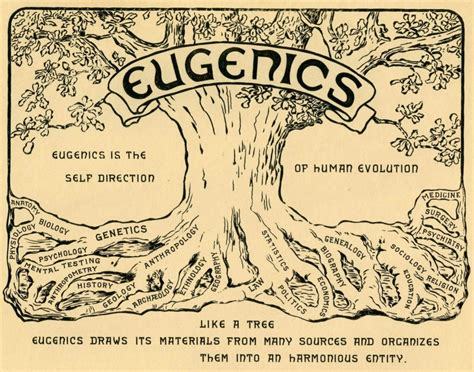
Queer Ecologies: Sex, Nature, Politics, Desire
Chapter 2 : Enemy of the Species by Ladelle McWhorter (part 3)
Species Troubled Past
1830s, USA—the abolitionists movement was growing. “it was simply wrong to enslave fellow human beings, no matter what benefits to society might result and no matter what racial differences might exist in intelligence, strength, health or ability” and old justifications for slavery no longer carried weight so slavery defenders turned to science—“Negroes and Caucasians were in fact distinct species” (79)
‘Important’ Names:
John Bachman- naturalist, South Carolina
Josiah Nott- physician, Alabama, “the most vocal of slavery’s scientific proponents”
Samuel G. Morton- world-renowned anatomist and professor medicine, Philadelphia
James Cowles Prichard- biologist, England
Nott used Prichard’s definition of species, “separate origin and distinctness of races, evinced by a constant transmission of some character peculiarity of organization” and referenced Morton’s study that found “significant racial differences in cranial capacity” to claim that Caucasians, Negroes, American Indians were separate species (79)=polygeny
Monogeny =the theory that humanity is one unitary species; Bachman offered this definition of species: “those individuals resembling each other in dentition and general structure. In wild animals […] they must approach the same size; but in both wild and domesticated animals they must have the same duration of life, the same period of utro-gestation, the same average number of progeny, the same habits and instincts, in a word, they belong to one stock that produce fertile offspring by association” (2005, 220) (80)
Racial diversity already existed in the USA, so Nott argued that ‘Mulattoes’ (crosses between Negroes and Caucasians) were sterile hybrids like mules and thus met Buffon’s requirement and qualified as two distinct species (80)-- he used his ‘observations’ as a physician who had treated many enslaved people to support this.
“Between 1846 and 1850 most respected scientists in the United States converted to polygeny”. Types of Mankind (1854)-published by what is now known as the American School of Anthropology.
Returning to Foucault’s words the author states, “concepts […] are for cutting. They are never merely benign representations of a natural arrangement.” (81) “Species could be made to function oppressively to separate white from blacks because […] it was already a tool for marking separations in natures heterogenous continuities in the interest of prevailing human practices” (81).
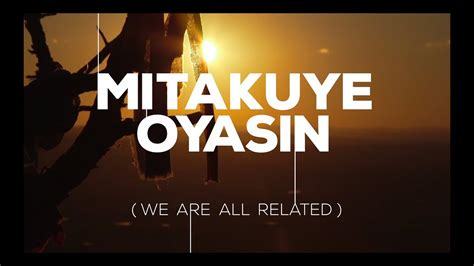
The Origin of Species (1859) Charles Darwin, who like many others maintained that the concept of species was practically meaningless, given the inevitability of evolution. “There are not eternally fixed types, nor are there eternally distinct lines of descent. All life on earth, no matter how morphologically or functionally distinct at present, conceivably could be traced back to a single germ line” (81) To me this concept is also what Mitakuye Oyasin means—we are all related. I believe my ancestors knew this ‘scientific’ truth long before Charles Darwin was alive. Charles Darwin never answered the question on the origin of species—species must change over time but not when change amount to a new species (82).
The theory of natural selection was remarkable, proponents agreed but it was incomplete—clearly certain groups like Africans, Pacific Islanders, and indigenous people from North and South America had not evolved sufficiently to produce ‘civilization’ (82) (Between indigenous peoples and those who supposedly created ‘civilization’, only one group has nearly destroyed their very environment at almost every turn—making them remarkably unfit and poorly adapted to the planet--and it isn’t indigenous peoples). But even those in the ‘higher races’ could fail to adapt—criminals, idiots, the mad, the degenerate, the chronically ill…like the ‘lower races’ these weaklings should be eliminated by natural selection. BUT, the Caucasian elite grew increasingly anxious…was humanity still evolving? Or was civilization circumventing the evolutionary process? Could it even reverse itself?—devolution. Modern technology and medicine= saving more people who might have once not survived, “allowing those with inferior traits to mature and reproduce” (82).
Madison Grant, was one of the many theorists who was concerned about devolution. He was a New York attorney and a conservationist who co-founded the Save-the-Redwoods League and the Bronx Zoo and helped establish Glacier and Denali National Parks. (83) Grant believed humans had evolved under harsh environmental conditions. Anglo Saxon history and the rising tide of inferiority that was everyone else…”Mistaken regard for what are believed to be divine laws and a sentimental belief in the sanctity of human life, tend to prevent both the elimination of defect in infants and the sterilization of such adults as are themselves of no value to the community. The laws of nature require the obliteration of the unfit” (Grant 1916,44-45) (83). (When in fact it is humans caring for one another that built humanity and underlies the entire point and purpose of civilization). Grant advocated for the sterilization of the criminal, diseased, insane and other weaklings and those he termed ‘worthless race types’ like Jews, blacks and indigenous peoples.
Immigration, they believed, should also be curtailed to prevent undesirables from entering the USA. “Immigration is thus, from the racial standpoint a form of procreation and like the more immediate form of procreation it may be either the greatest blessing or the greatest curse” (Stoddard 1925, 252) (84).
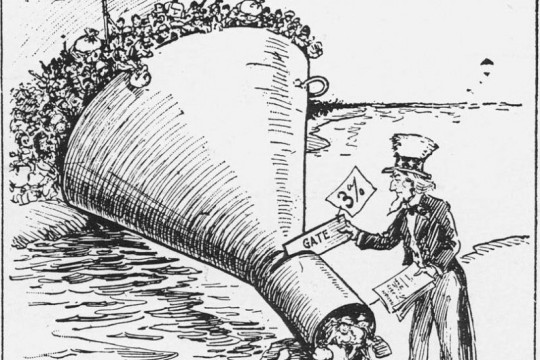
So elite influential men and their allies created organizations such as the Immigration Restriction League (full of Harvard alumni), the American Breeders’ Association (later renamed the American Genetics Association), and what later became the American Psychiatric Association-- and they won passage of an immigration restriction bill (1917)—it instituted literacy tests, put caps on the number of immigrants, national quotas and denial of entry basis on the condition called ‘constitutional psychopathy’. This effectively screened out anyone who did not conform to gender norms or anyone who admitted to homosexual desire. “Further, any immigrant who, during the first give years of residence in the United States, committed a crime or showed signs of any allegedly hereditary physical or mental defect, including sexual inversion, could be deported” (84). Congress also barred people who were ‘feebleminded, morally degenerate, or sexually suspect’.
Then in 1924, they reduced the number of people who could immigrate to the US by an annual total of 150,000, making it the exclusive country in the world. These provisions stayed in effect well past the middle of the twentieth century (85).

The introduction of the Simon-Binet IQ test in 1912 made identifying those were ‘intellectually unfit’ quick and easy (85)—public schools became screening grounds. Certain children would be segregated from their classmates until they could be institutionalized. The test was modified by eugenicist psychologist Henry Goddard to include a grade of ‘feeblemindedness beyond the imbecile. Individuals with a test measured mental age of eight to twelve years were classified as morons.’ (85) “Women who had children out of wedlock were automatically classified as such but any deviation from heterosexuality and prescribed gender roles could earn a person the label of moral imbecile in addition to the label of degenerate, lunatic or psychopath” (85-86). Hundreds of thousands were locked up for life as a result of these efforts to forestall a perceived threat to natural selection and evolution of humanity.
Quietly, eugenicist physicians had been sterilizing ‘defectives’ in prison, hospitals and asylums since the 1880s. In 1927, the Supreme Court endorsed these eugenic practices in Buck v Bell (86). By 1927, the number of Americans legally sterilized without their consent would reach 65,000~ (86).
“Adolf Hitler learned a great deal from American eugenicists, particularly about involuntary sterilization” –1934 Nazi involuntary sterilization law was based on the Model of Eugenical Sterilization Law drafted by American biologist Harry Laughlin (1922). He advocated for the sterilization of about 10% of the U.S population, those deemed ‘socially inadequate’ such as the (1) feeble-minded; (2) Insane, (including the Psychopathic); (3) Criminalistic (including the delinquent and wayward);(4) Epileptic; (5) Inebriate (including drug habites); (6) Diseased (including the tuberculosis, the syphilitic, the leprous, and others with chronic infections and legally segregable diseases); (7) Blind (including those with seriously impaired vision); (8) Deaf (including those with seriously impaired hearing); (9) Deformed (including the crippled); and (10) Dependent (including orphans, ne-er-do-wells, the homeless, tramps and paupers) (Laughlin) (86-87).
By 1934, nearly thirty US states had enacted such laws, though few were as drastic as Lauglin’s suggestion. Some provinces in Canada and in Europe also followed. “The Nazis […] has some serious eugenic catching up to do” (87).
By 1937, the Nazis had sterilized approx. 250,000 Germans before they began to eliminate defectives through eugenic ‘euthanasia’ (87)—genocide.

Though such things were never enacted in the US, proponents of eugenics considered it and continued to push their sterilization agenda (Partlow and his three-man committee designed to sterilize any sexual perverts, Sadists, homosexualists, Masochist, Sodomists or two-time convicted rapists. They would have no right to judicial review. The bill passed state legislature when it was vetoed twice by Governor Bibb Graves) (88).
As the details of the Nazi regime became more widely understood in the US, the eugenics movement lowered its profile and changed tactics. “Eugenics should therefor operate on a basis of individual selection” and “Eugenics, in asserting the uniqueness of the individual, supplements the American ideal of respect for the individual” (89)
#queer ecologies: sex nature politics desire#eugenics#genetics#critical ecology#queer ecology#ecofeminism#queer theory#environmental politics#colonialism#racism#ableism#erotophobia#heteronormativity#queer history#nazis#ww2#immigration#immigrants#ecology#long post
24 notes
·
View notes